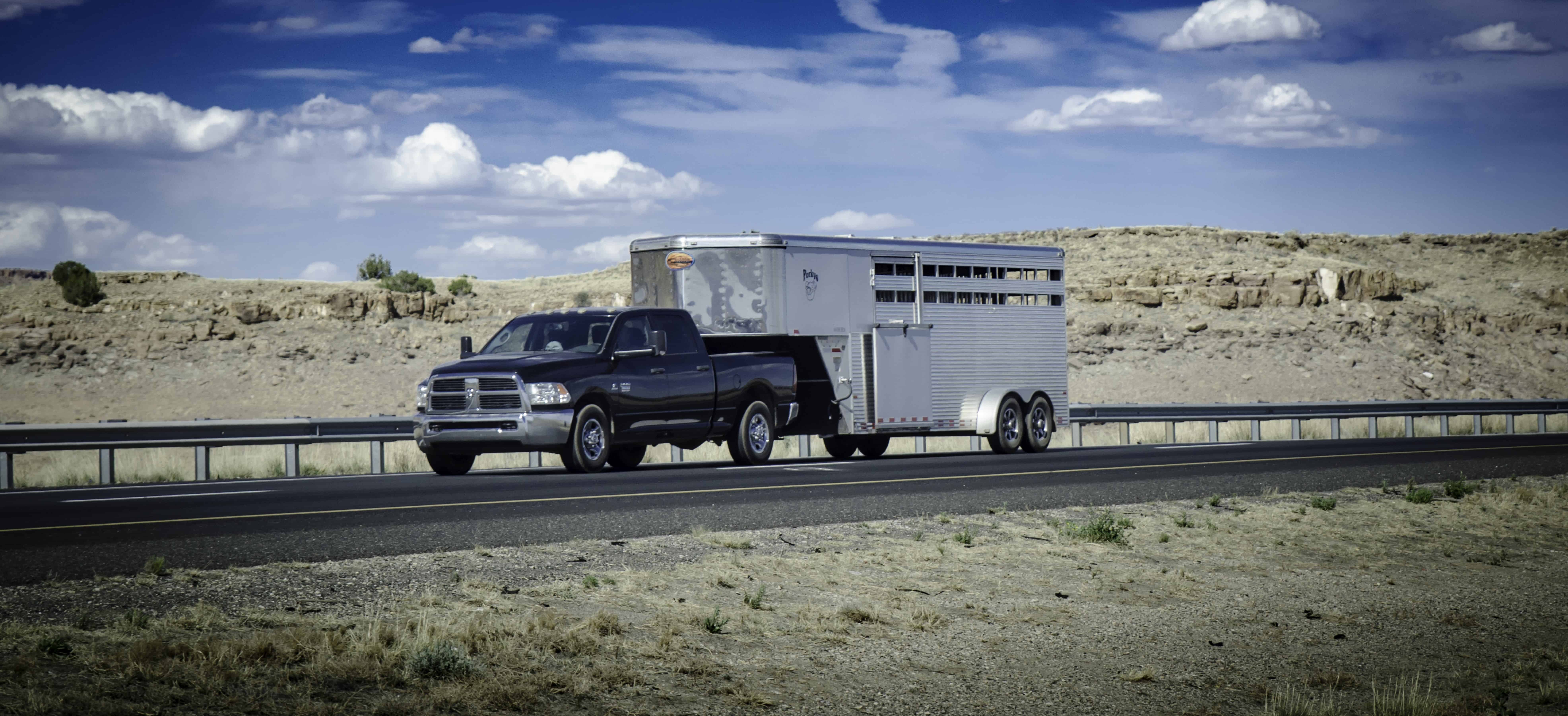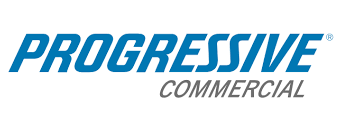It may be readily apparent that every haul has its own specific set of requirements, but you might not realize that sometimes your commercial driving job doesn’t require a CDL. In instances when an oversized vehicle is overkill and your work only requires the use of a standard vehicle for expedited or way-less-than-a-load deliveries, you’ve become a hotshot driver.
In addition to the upside of better fuel economy, hotshot driving doesn’t require CDL insurance coverage. You do, however, still need non CDL hotshot insurance. If you’re planning to provide last mile deliveries via pickup trucks or other standard vehicles, it’s time to talk about hotshot insurance policies with one of the following non-CDL providers.
And when you’re finished reading this, check out the other articles in our ‘Hotshot trucking’ series:
- How much do hotshot loads pay?
- What is the best non CDL hotshot insurance?
- Best load boards to get hot shot loads for pickup trucks
- Guide to the best ELD for hotshot trucks
Quicklook: Best non CDL hotshot insurance
- Progressive Insurance
- Liberty Mutual
- Hummel Insurance
- Colonial Insurance Services
- Lancer Insurance
- Rev Insurance
Non CDL hotshot insurance vs CDL hotshot insurance
Non CDL hotshot insurance is designed for companies that use smaller trucks and other standard vehicles to complete expedited and last-mile deliveries. Because standard vehicles just need a valid license to operate, hotshot drivers aren’t required to have a CDL, though many still do.
Some companies do offer CDL hotshot deliveries that use Class 8 OTR drivers, which means you’ll need different insurance given the different risk class that the larger truck places you under.
Insurance companies make the distinction between CDL hotshot driving and non CDL because of the difference in how much you’re likely transporting and how risky they view your business.
5 best non CDL hotshot insurance options
Finding the best hotshot trucking insurance helps you avoid liability for all aspects of your transportation business at an affordable price. Here’s a look at the best companies that provide hotshot coverage alongside other trucking policies.
Progressive Insurance
Progressive Insurance is well known for its auto insurance policies. While you might not automatically think of the company for commercial insurance purposes, Progressive’s expertise extends beyond personal policies. Progressive provides all the trucking insurance you could possibly need to protect your business.
Coverage options
- Utility trailer
- Horse trailer
- Gooseneck or medium-duty trailer
Special features
- Build out the insurance needed to cover your entire business
- Fast, easy quote process
- Customized based on your unique needs
- Well-known insurance company for all types of vehicle coverage
- 50-year history as an insurance provider
Liberty Mutual
Liberty Mutual offers commercial auto insurance tailored to various business needs, including coverage for non-CDL trucking operations. Their policies are designed to protect businesses against liabilities and damages involving commercial vehicles, accommodating a range of vehicle types and business models.
Coverage options
- Primary liability
- Motor truck cargo
- Physical damage
- General liability
- Non-trucking liability
- Workers’ compensation
Special features
- Risk control consulting to help minimize accidents and claims
- Access to industry-specific resources and safety tools
- Robust claims management system with 24/7 assistance
- Customizable coverage packages for fleets of any size
Hummel Insurance
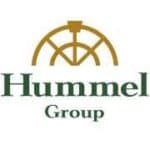
Hummel Insurance is well-known for its expertise in the trucking industry. Whether you’re seeking bobtail insurance or non-CDL hotshot coverage, you’ll find what you need when working with this insurance agency. The company is based in Ohio, but it offers services to 48 states.
Coverage options: Hummel Insurance offers a team of independent agents who will work with you to pull quotes from many large trucking insurance companies and help you find the best rates. You’ll discuss your coverage needs with an agent and they’ll introduce you to companies that can offer services that will meet your needs at a rate that will work for your business according to your company’s size.
Special features
- Independent agent serving 48 states
- Quotes multiple insurance companies to help you find the best rates
- Combines your various insurance policies under one convenient agent to give you a single point of contact for all types of insurance
- Long-term relationship to help you quote your insurance annually or every few years to keep competitive rates
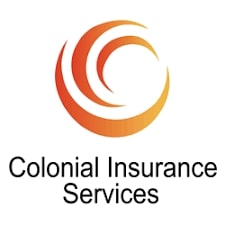
Colonial Insurance Services
Colonial Insurance Services focuses on the trucking industry and has unique insights and experience working with these companies. Whether you’re managing a fleet or you’re an owner-operator managing your solo business, you’ll find the coverage options you need to protect yourself from liability even when providing expedited deliveries.
Coverage options
- Comprehensive
- Collision
- Coverage for goods while loading and unloading them
- Downtime coverage of up to $100 per day, for up to 30 days, in the event that your truck is damaged in a covered accident
- Earned income coverage in case you cannot deliver a load due to a covered cargo loss
- Equipment, including ramps, binders, chains, and tarps
- Family emergency expenses of up to $2,500 if you suffer injury away from home
- Loan or lease gap coverage to pay off the amount you owe on a vehicle if it is more than how much the vehicle’s value at the time of an accident
- Loss mitigation/sue and labor coverage to prevent further costs when cargo gets damaged
- Medical payments if you suffer an injury while operating the truck
- Pollution coverage in case of a discharge of pollutants when in transportation, loading, or unloading
- Reasonable debris removal expenses in case of a covered accident
- Towing and storage of damaged equipment
Special features
- Combined deductibles to pay one fee for all insurance needs
- Industry expert
- Known for providing outstanding coverage for trucking businesses
- Family-owned insurance company
- Simple, clear policy language from a helpful team
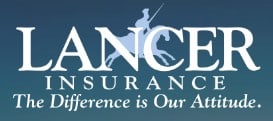
Lancer Insurance
Founded in 1985, the Lancer Insurance Company is a division of Core Specialty. With nearly 40 years in business, and the financial strength to handle any type of claim, Lancer Insurance started as the bus guys, and grew to a multi-function commercial products company. The company has more that 400 employees, with locations set up across the country.
Lancer is licensed to cover all 50 states, along with Washington D.C., and Puerto Rico. With it’s commercial excess liability coverage options, hotshots are fully insured nationwide.
Coverage options
- Bodily injury and property damage liability
- Personal injury protection (PIP)
- Uninsured motorist coverage (UM)
- Underinsured motorist coverage (UIM)
- Medical payments (med pay)
- Physical damage (specified perils & collision)
- Collision — covers repairs or replacement of insured vehicles resulting from an accident
- Comprehensive — pays for damage to your insured vehicle from fire, theft, vandalism and more
- Cargo
- General liability
Special features
- A- “Excellent” financial size IX rating from A.M. Best
- Insurance company focused solely on commercial needs
- 24/7 access to downloadable certificate of insurance
- Easily file claims online quickly
- Free loss recovery program to assist with out-of-pocket costs
- SafetyLink Hotline for additional information on loss control issues
- Safety Stop compliance blog access
- Includes access to driver training videos
- Business resource hub includes compliance library for FMCSA regulations

Rev Insurance
Rev Insurance is a division of Valaris Insurance Group focused on the trucking industry. The company knows the unique challenges that the transportation industry faces and helps limit those challenges with outstanding insurance coverage. Regardless of the various types of transportation services you provide, Rev has insurance solutions to protect those activities.
Coverage options
- Agriculture load
- Bodily injury insurance
- Cargo insurance
- Coverage for damages
- Freight
- Fruit or vegetable load
- Gooseneck trailer
- Horse trailer
- Liability coverage
- Medical insurance
- Medium duty trailer
- Property damage
- Utility trailer
Special features
- Low rates
- Dedicated insurance company for the trucking industry
- Fast, easy way to get your insurance certificate
- Allows you to work with shippers who require that you have a certificate
- Resources to help you start your trucking business
Non CDL hotshot trucking and insurance considerations
Before deciding on which insurance companies to get quotes from for your hotshot insurance needs, you should know what factors you should take into consideration.
Price
The cost of non CDL hotshot insurance varies based on the coverage options you choose. Insurance companies will take how far you plan to travel, the trucks you’ll be using to transport the goods, and more to determine your cost.
Policies are generally anywhere from $7,000 to $12,000 per year, with an average of $10,000. Always get several quotes and do your due diligence before selecting a policy to ensure you’re getting the right price and service level based on your business needs.
Distance
The less distance your deliveries require, the less you’ll pay for your hotshot insurance. More time behind the wheel means more chances for you to be in an accident from the insurance company’s point of view.
DOT requirements and regulations
DOT requirements state that to be considered a non CDL business, your vehicle and cargo must be 26,000 pounds or less. That might sound like a large weight capacity, but when you consider the average weight of a truck and trailer, it doesn’t leave you tons of cargo capacity. Even if you’re operating a smaller truck than a tractor-trailer, you might become classified as needing a CDL if you’re hauling heavier cargo.
State lines
You’ll need to register your business and vehicles within every state that you drive or operate in. The less you cross state lines, the easier managing your business will be and the less expensive your insurance rates are.
Competition
Non CDL hotshot trucking is far more competitive than CDL trucking, mainly because there is less of a barrier to entry, and there are fewer regulations. Make sure you know and understand the competitive landscape in your area before investing your time and money into offering hotshot services. Getting established and having shippers trust you with their goods might be harder than you might think.
Pros of non CDL hotshot trucking
- Easier to get into than CDL trucking due to the lower cost of entry and training
- Simpler management of regulatory requirements than a CDL business
- Ample business opportunities to transport goods from warehouses through last mile
- Lower business expenses due to less expensive vehicle repairs and better fuel economy
Cons of non CDL hotshot trucking
- Highly competitive marketplace to get established in
- Limiting as to which jobs you can take on due to capacity limits or size constraints
- Constant need for prospecting and setting up jobs
- Livelihood is tied to less lucrative short, quick trips
Protect your non CDL trucking business
Standard commercial auto policies are not enough coverage for trucking companies that haul goods for customers. So even though you aren’t operating a tractor-trailer, you still need special insurance to protect yourself from serious financial impacts in case of cargo damage.
That’s what non CDL hotshot insurance policies provide. Plus, you’ll likely need to furnish a certificate of insurance to earn business with shippers near you.
FAQ
To start your hotshot trucking business, you’ll need liability coverage for physical injuries and property damage as well as cargo insurance.
Standard four-door trucks do not have an area that qualifies as a place to sleep. Therefore, unless you add a DOT-legal berth to your truck, you cannot sleep in it under FMCSA guidelines.
In order to team drive for hotshot deliveries, you would need to have a truck with a DOT-legal sleeping area. Otherwise, both people inside the vehicle will be considered to be on the clock the entire time while they’re inside the vehicle.

